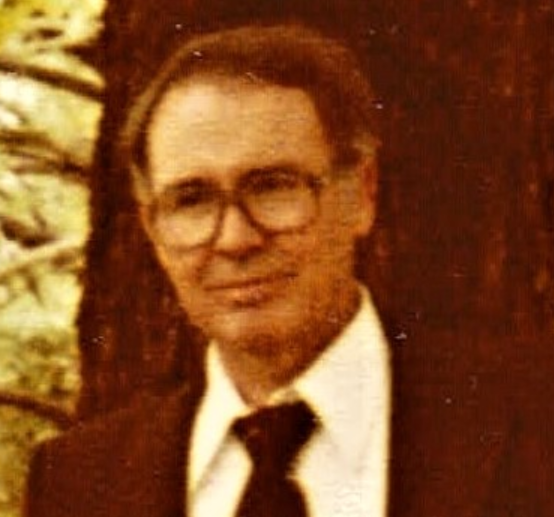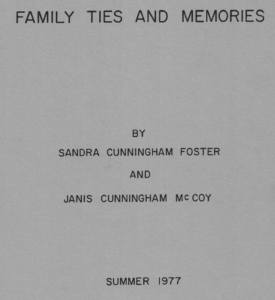(Note: “Uncle Kelley” in this story is the son of James Marshall Sanders and Emma Springfield. All the others characters are grandchildren or in-laws.)
Ever play Rook? It seems kind of tame now, actually, after playing bridge all these years, but , law me, we used to have some rough Rook games.
We usually get together up at Kelley’s house. Kelley, or Heck, as we called him most of the time, was my bachelor uncle, and he lived a couple hundred yards from our house at Grandma’s old place.
He was the family “Uncle,” the kind every kid deserves at least one of. Unlike our parents who were more or less committed to a fairly strict timetable because of family responsibilities, Heck came and went as he pleased. He worked at several jobs whenever the spirit moved him. If he wanted to sleep till noon and work till two in the morning, he did. Or he might work like a dog on Saturday, farming, then get in his battered old car and ride around over the countryside like a man of complete leisure on Monday when everybody else was out sweating and casually remark that he was all caught up with his field work and it was too bad they still had so much to do.
But he’s worth a book or two. This is about the Rook games we used to play up at his house.
As nieces and nephews will, we kind of got scattered about. Some of us were off at college, some working in Birmingham and other places, a few still around home. Once in a while a bunch of us would happen to be home at the same time, and after hellos and brief reports on our activities since our last visit, we’d get a good country supper under our belts and head up to Heck’s house.
Naturally, everybody wouldn’t always be there, but there’d usually be enough for a couple of tables out of a pool of kinfolks and the accepted newcomers who had married into the family. James and Gay would be down from Birmingham; Virginia and sometimes Nell would be there; and Willa and her husband, Bill; and Vinton, Polly’s husband, also from Birmingham; and Charlie and Thomas and Jack. And if we didn’t have enough for two tables, any extra people would stand around and kibitz and then get winners when a game was completed.
Now, for the uninitiated, Rook, while similar to bridge in some respects, is simpler, and much more dependent on pure dumb luck. For instance, the bidder gets a “widder” of five cards which, if he desires, he can substitute for five cards in his original hand; so it’s quite possible, and the way we played, usually, to bid recklessly on practically nothing and get enough good cards out of the “widder” to make it.
It is equally possible to go set, or “in the hole,” to fantastic amounts –the way we played. Ole Gay would chortle with pure glee when he could make a big bid, or go into a minor rage when he went set, especially if Charlie happened to be his partner. Charlie’d catch hell, which bothered him not one iota.
In addition to the wild ups and downs of the game, as played by the Sanders rules, there was an element of cheating. Kelley had such a mind for cards and figures and statistical chances–what a bridge player he’d have made–that the game itself was no challenge, so he’d devise elaborate signaling schemes to, among other things, find out if his partner had the rook card, which, in the game of Rook is almost a prerequisite for making a bid. That added another dimension to the game: in addition to trying to keep up with what cards had been played, you had to watch out for Heck’s cheating, which kept you on your toes. He’d puff on his pipe and flatly deny any accusations.
Sometimes he’d play the role of host to the extent of having a pot of vile-tasting coffee on hand, which anybody who dared could partake of, and maybe somebody’d bring some cookies or something from the Yellow Front store for us to snack on, and, while he didn’t encourage it, knowing how our parents felt about it, if we felt like smoking, we could without being told on.
And the bidding and laughing and remembering and story-telling would go on into the wee hours of the morning. There’d be a close, wonderful feeling of camaraderie, a true kinship amongst us, with even the bones of our ancestors in the family graveyard just a few paces from the north side of Kelley’s house adding to the feeling.
Finally we’d decide we’d better get on home, so we’d drift outside, step off the porch and still linger around for a moment or two, looking at the moonlight on the old George field, where we’d all worked at one time or another, reluctant to break up the meeting. But we would, hoping it wouldn’t be too long before we had another gathering of the clan, up at Kelley’s house.

